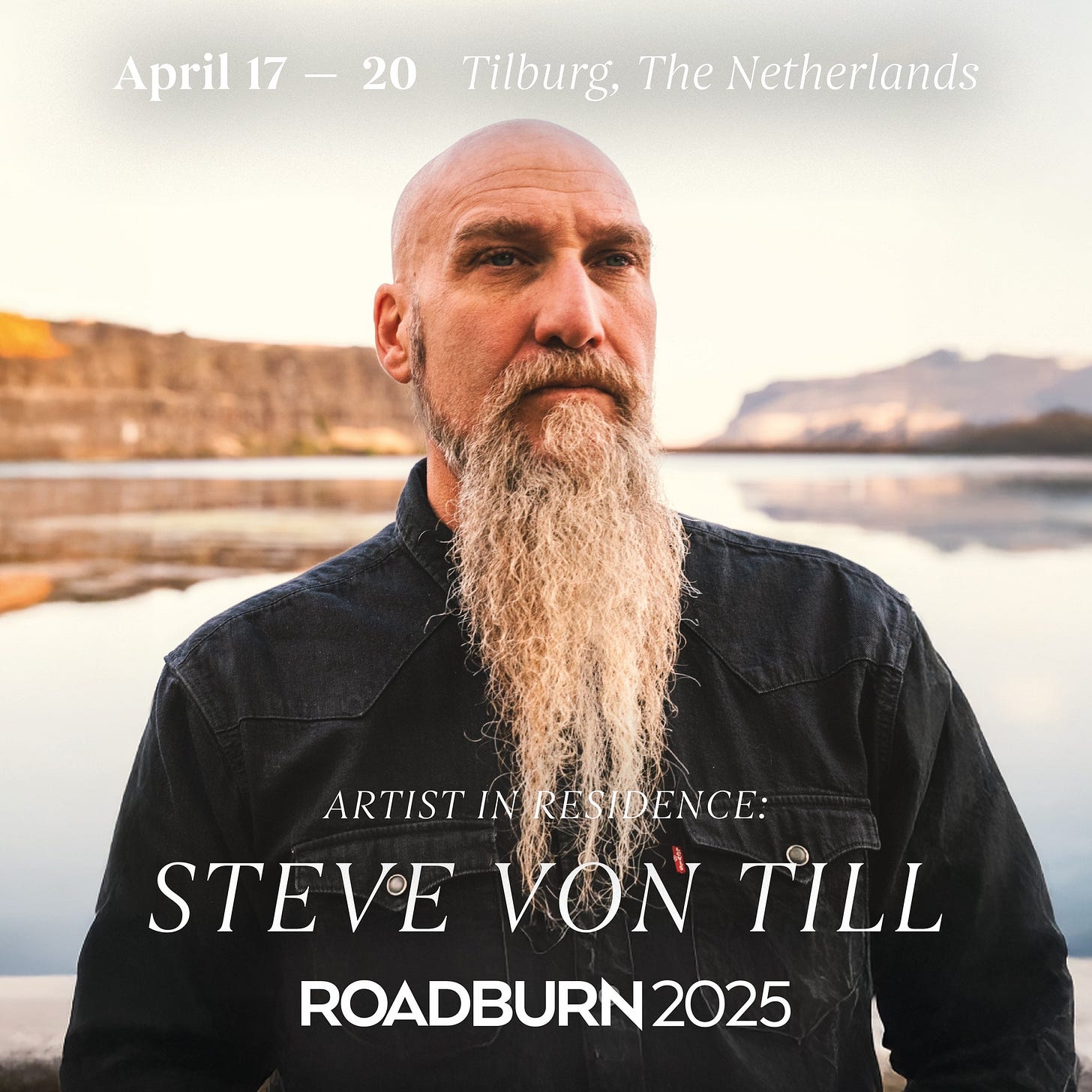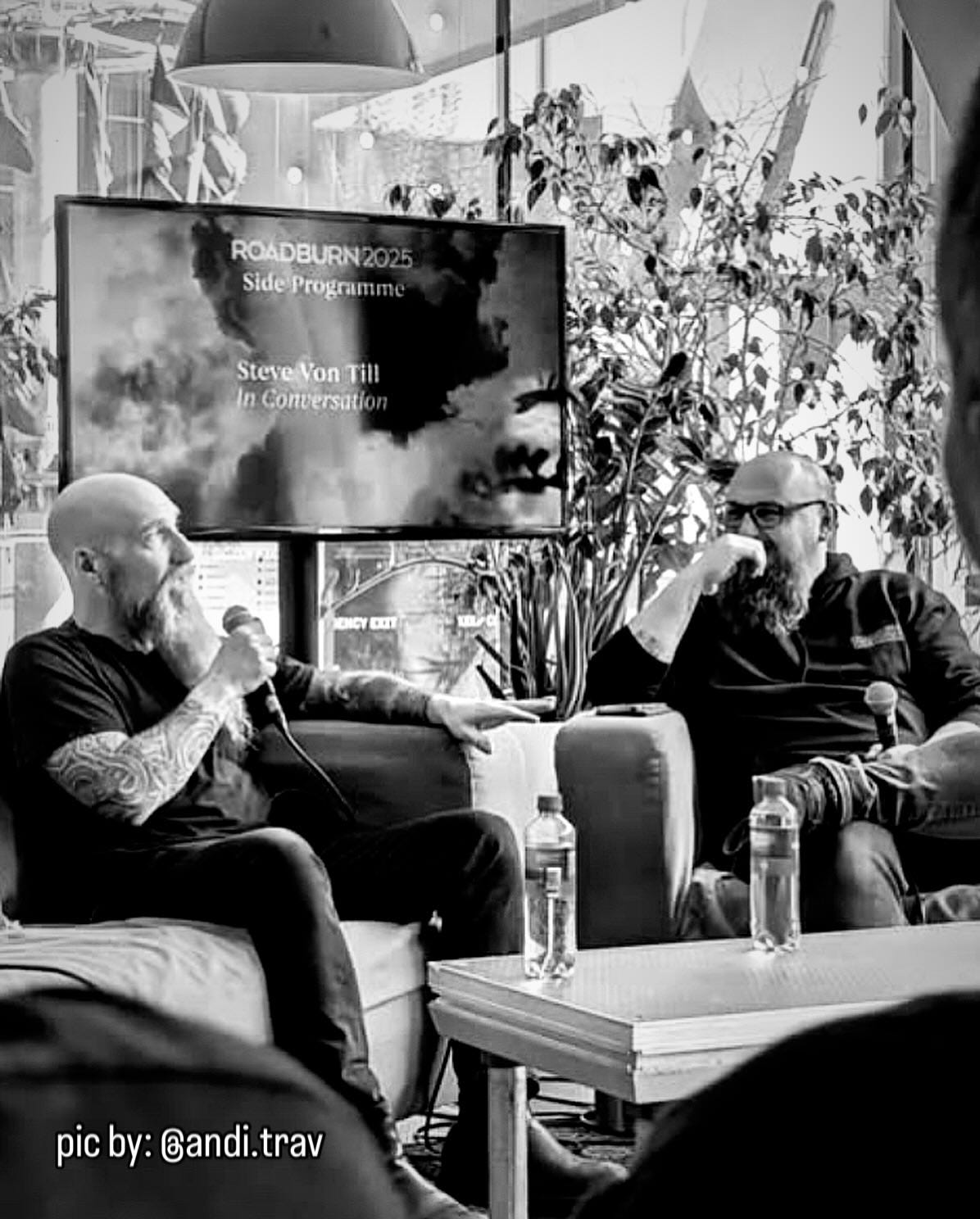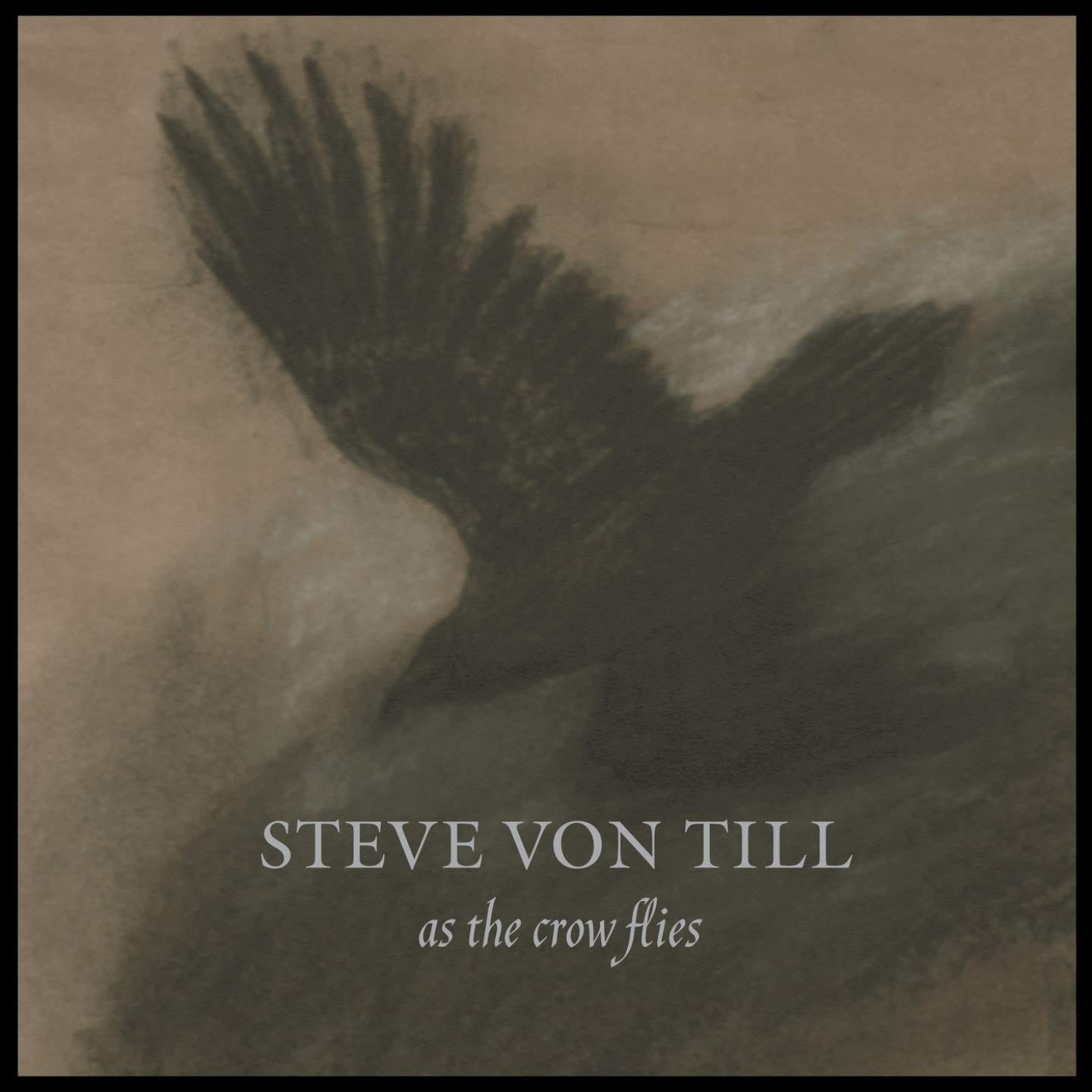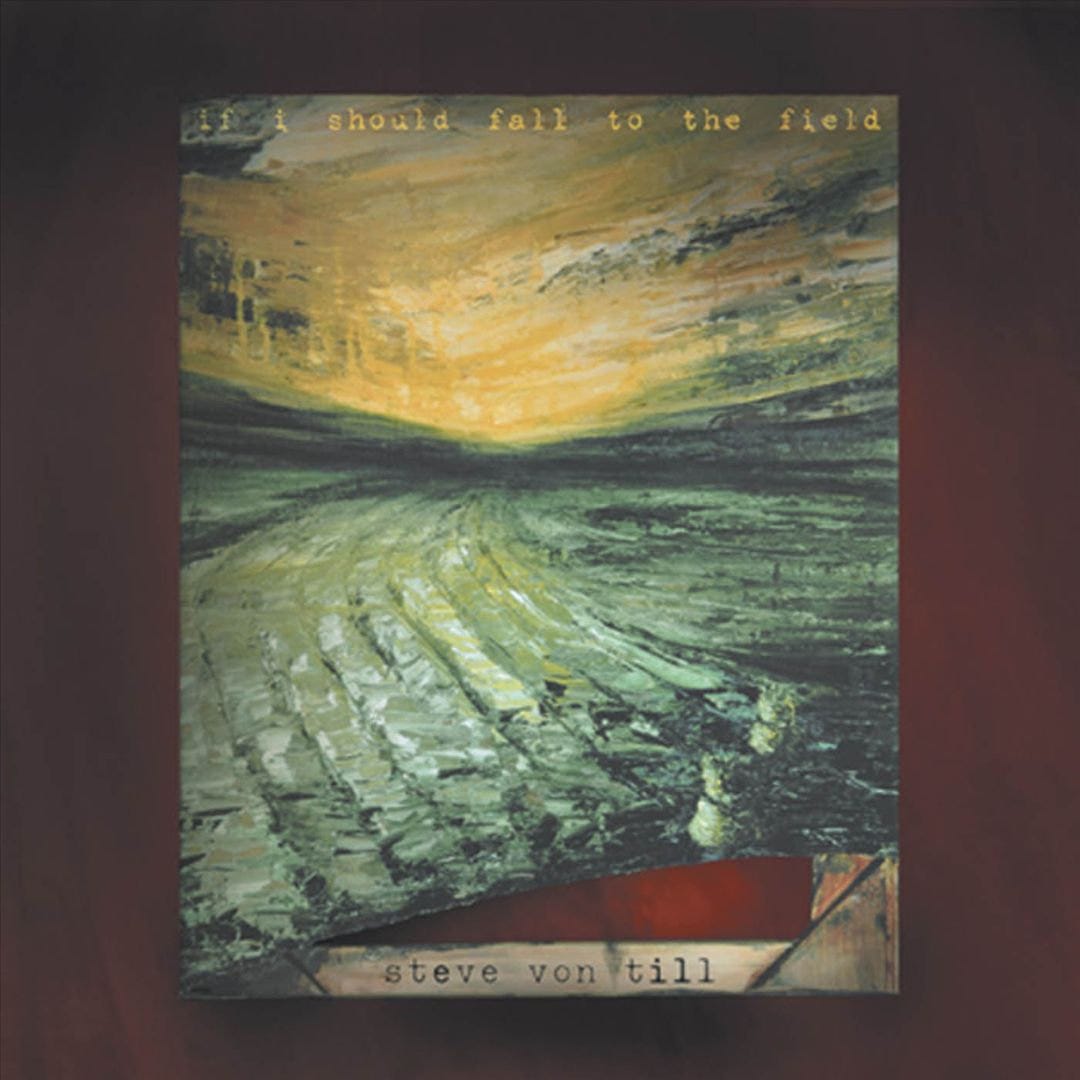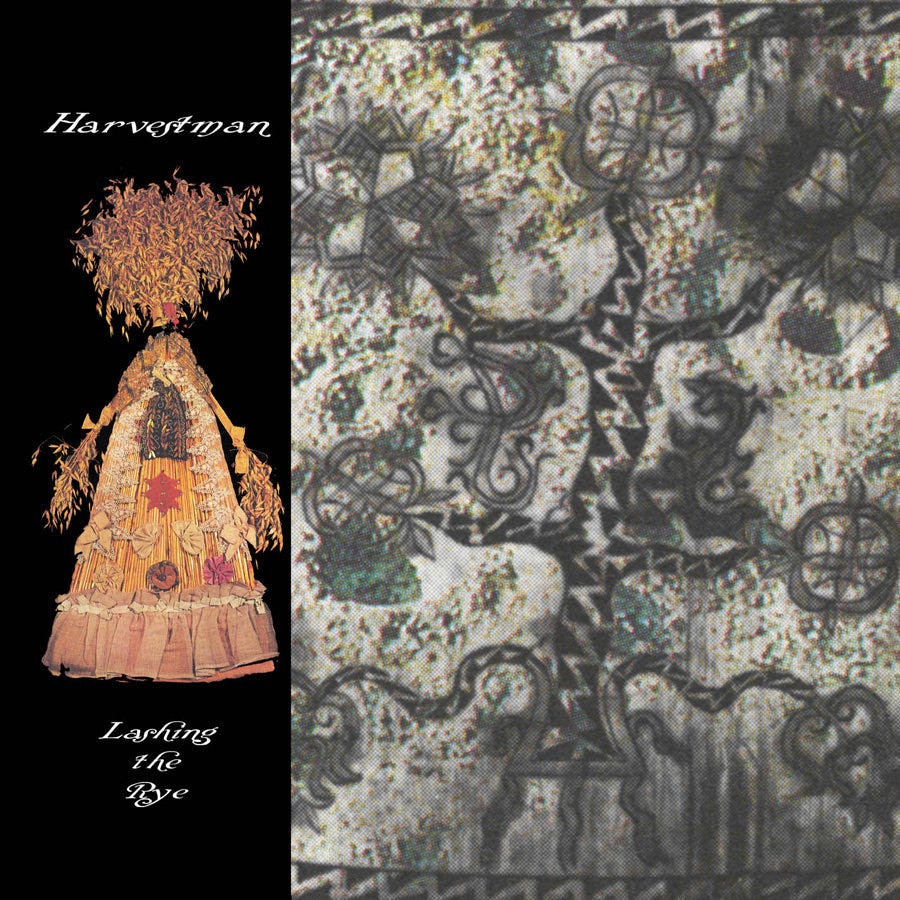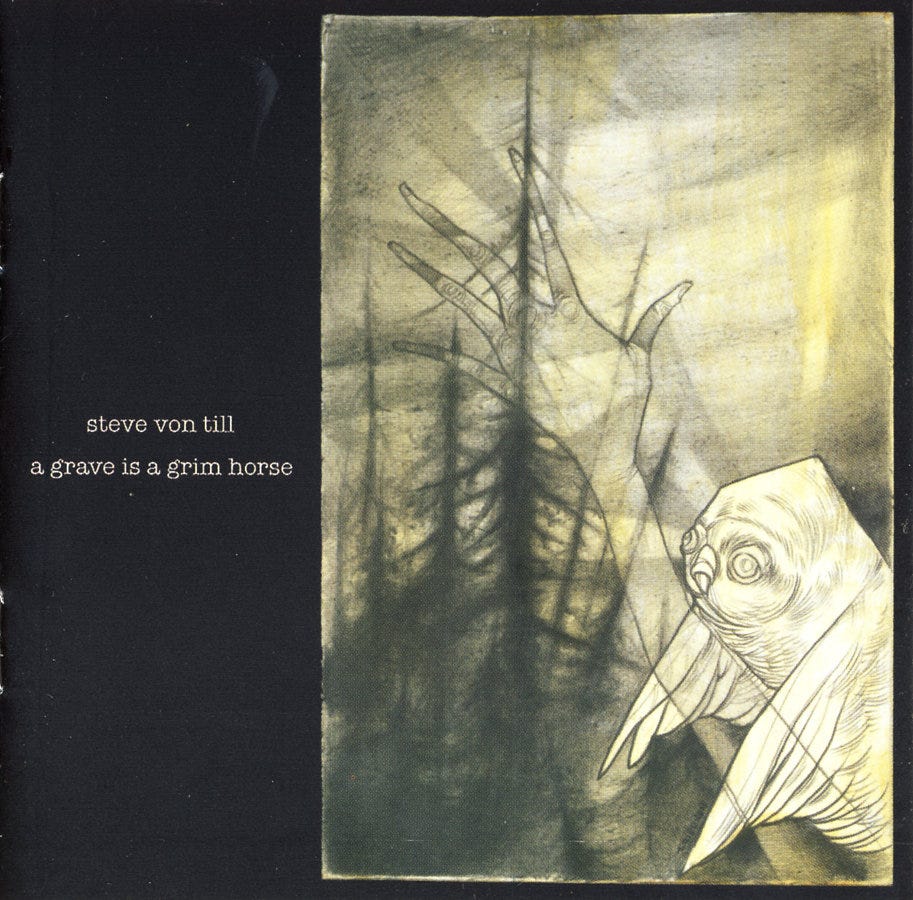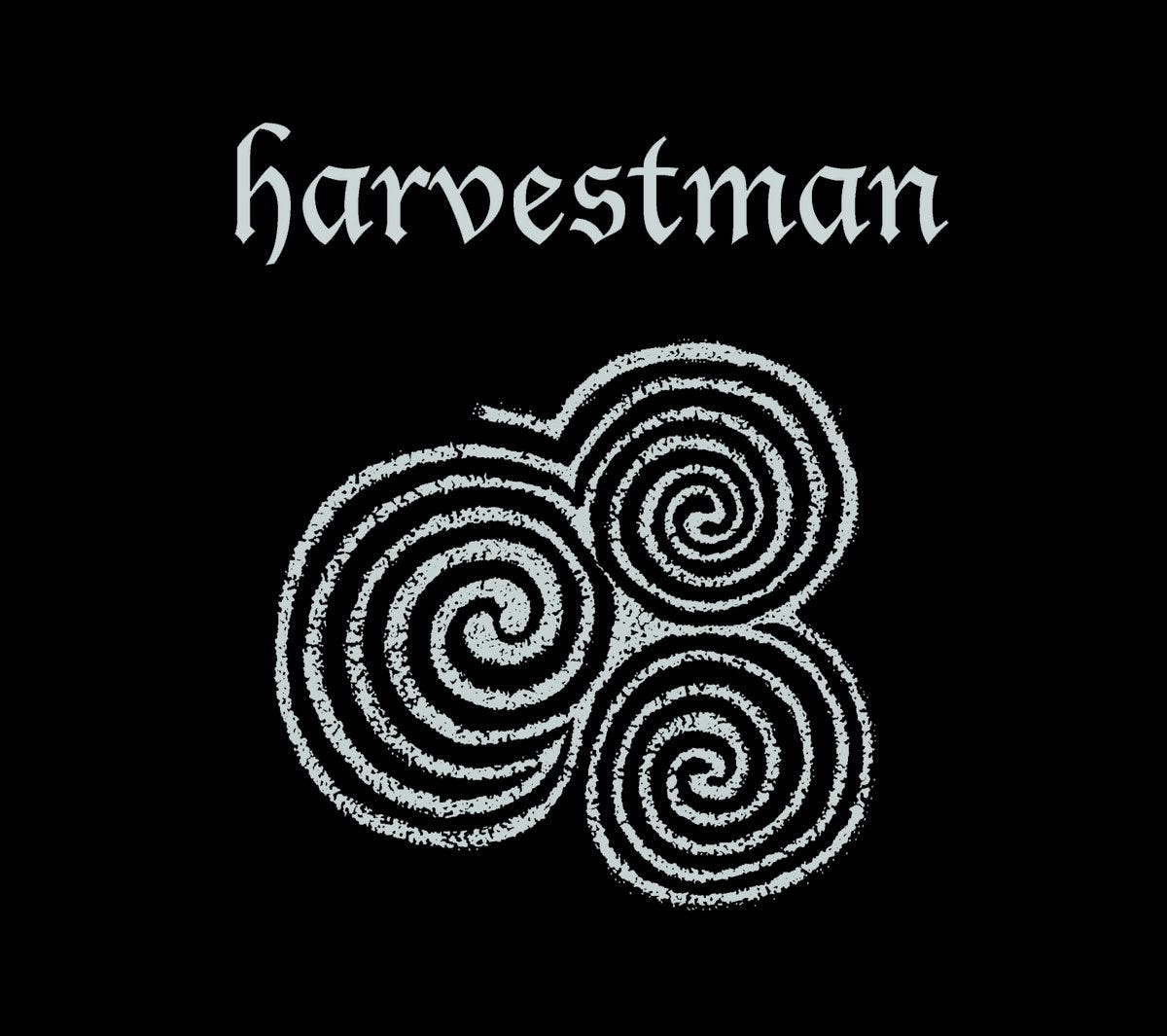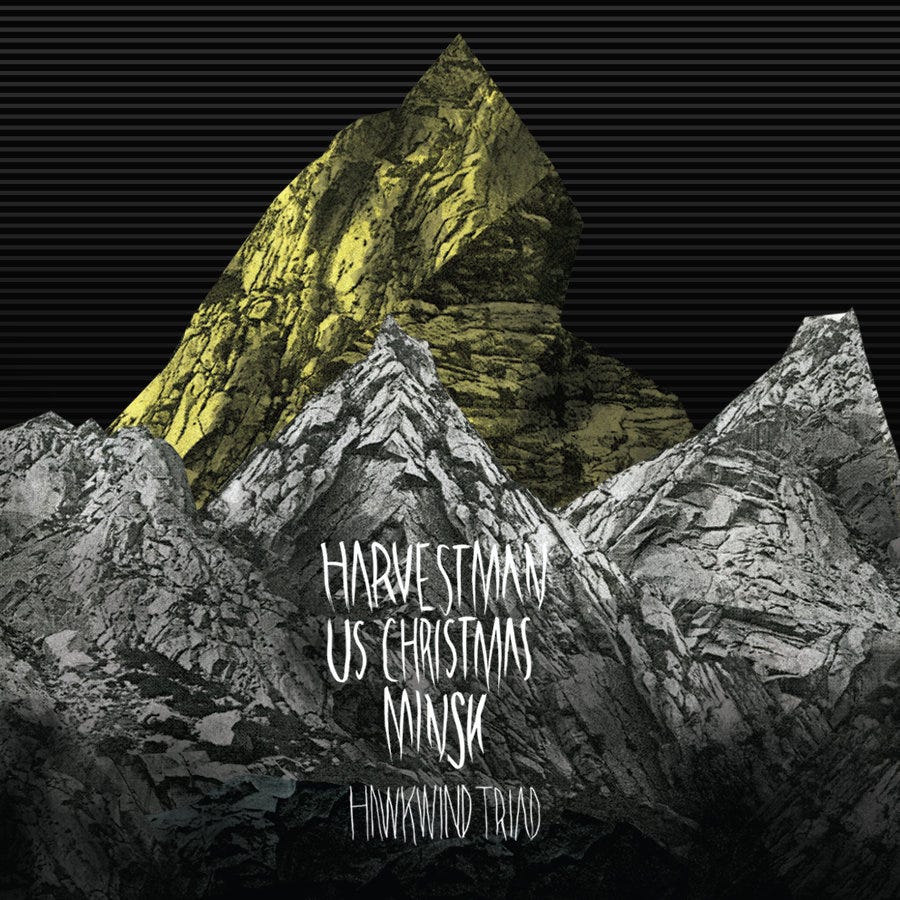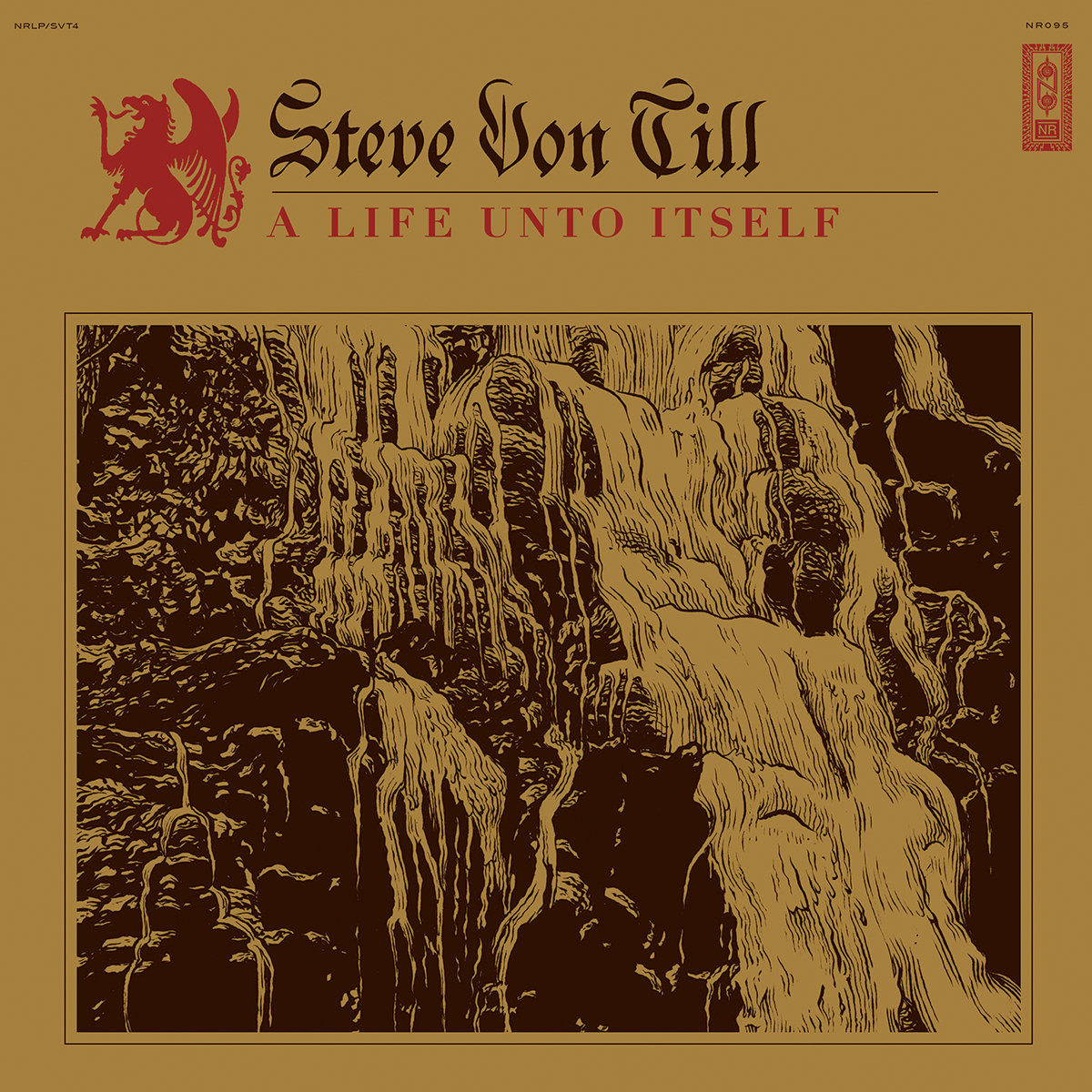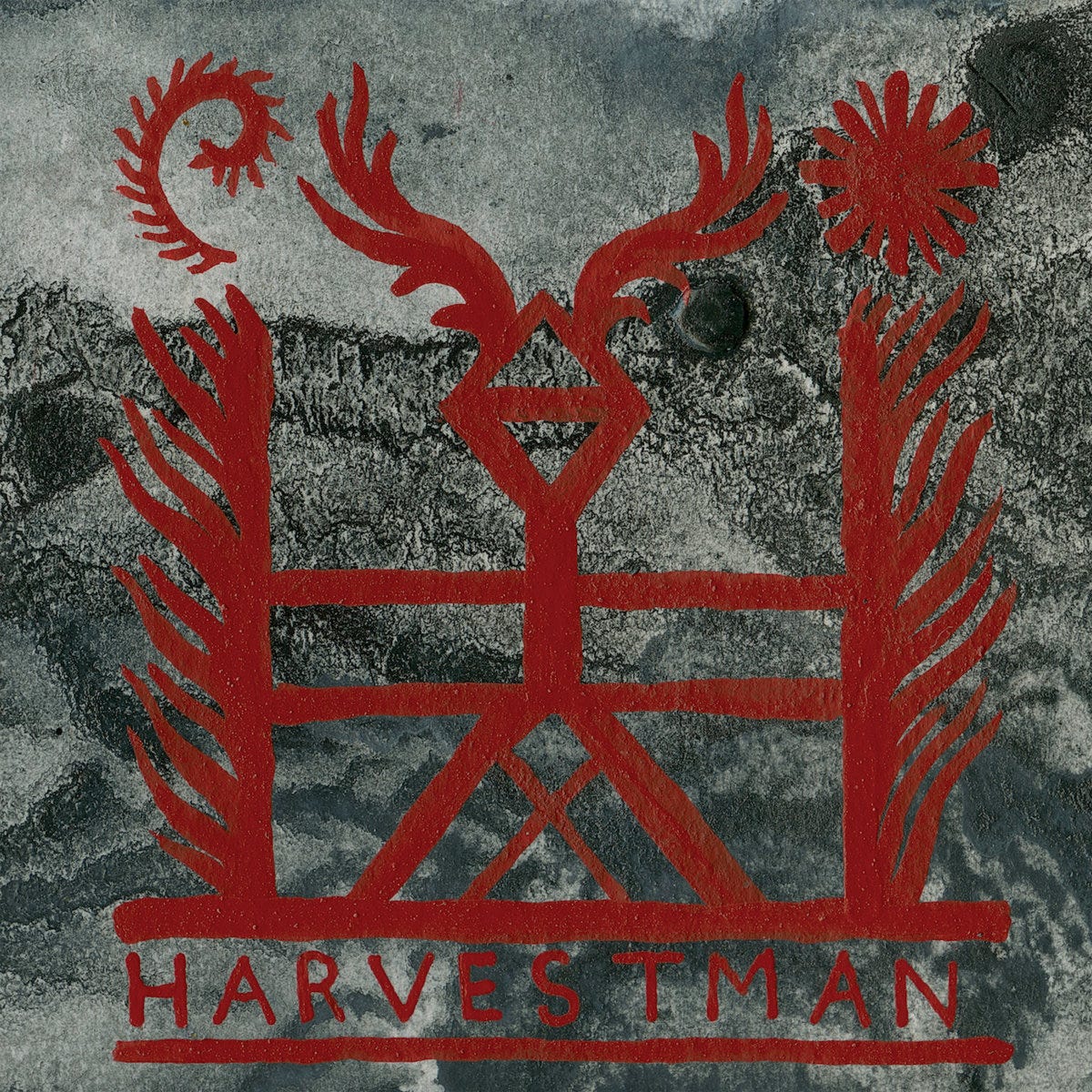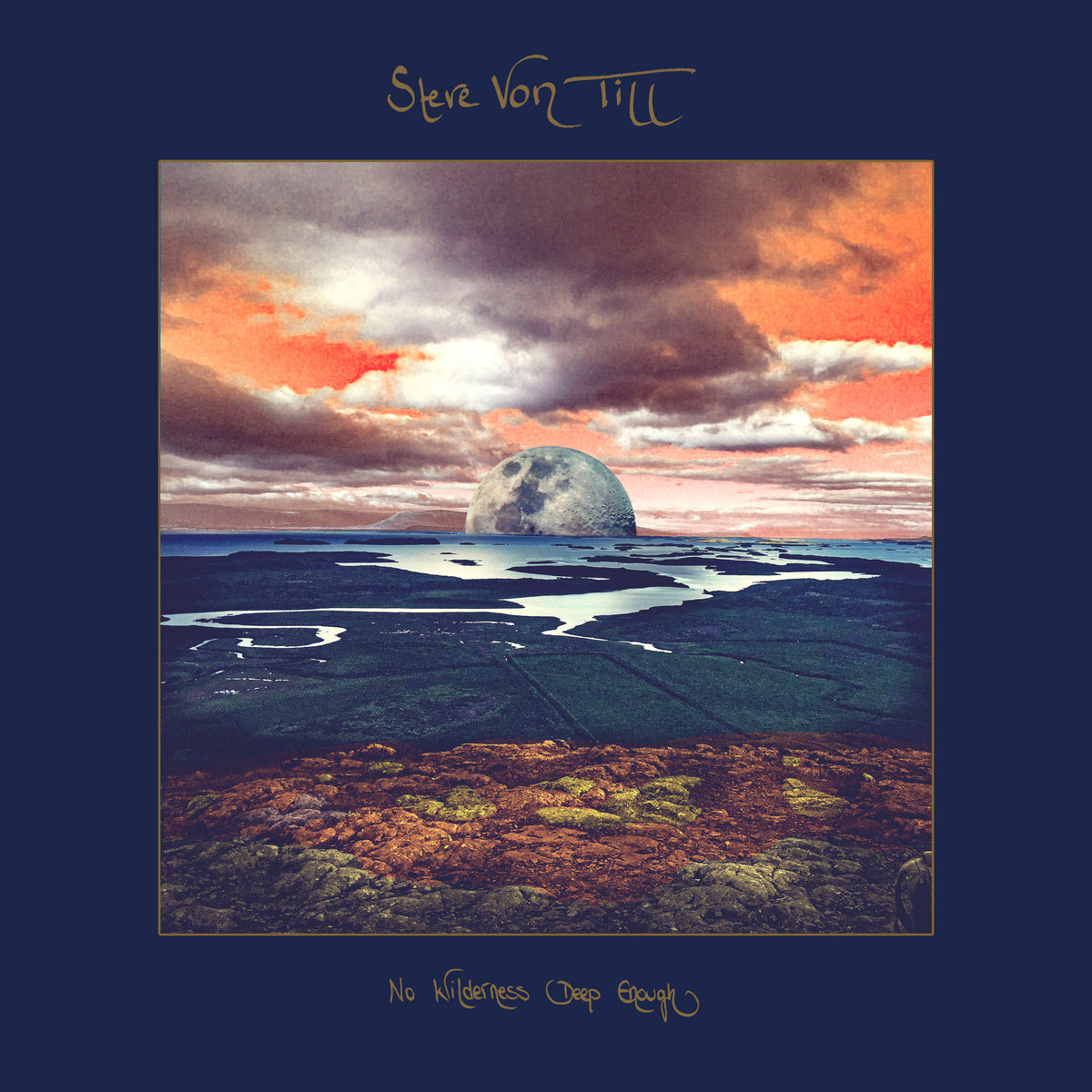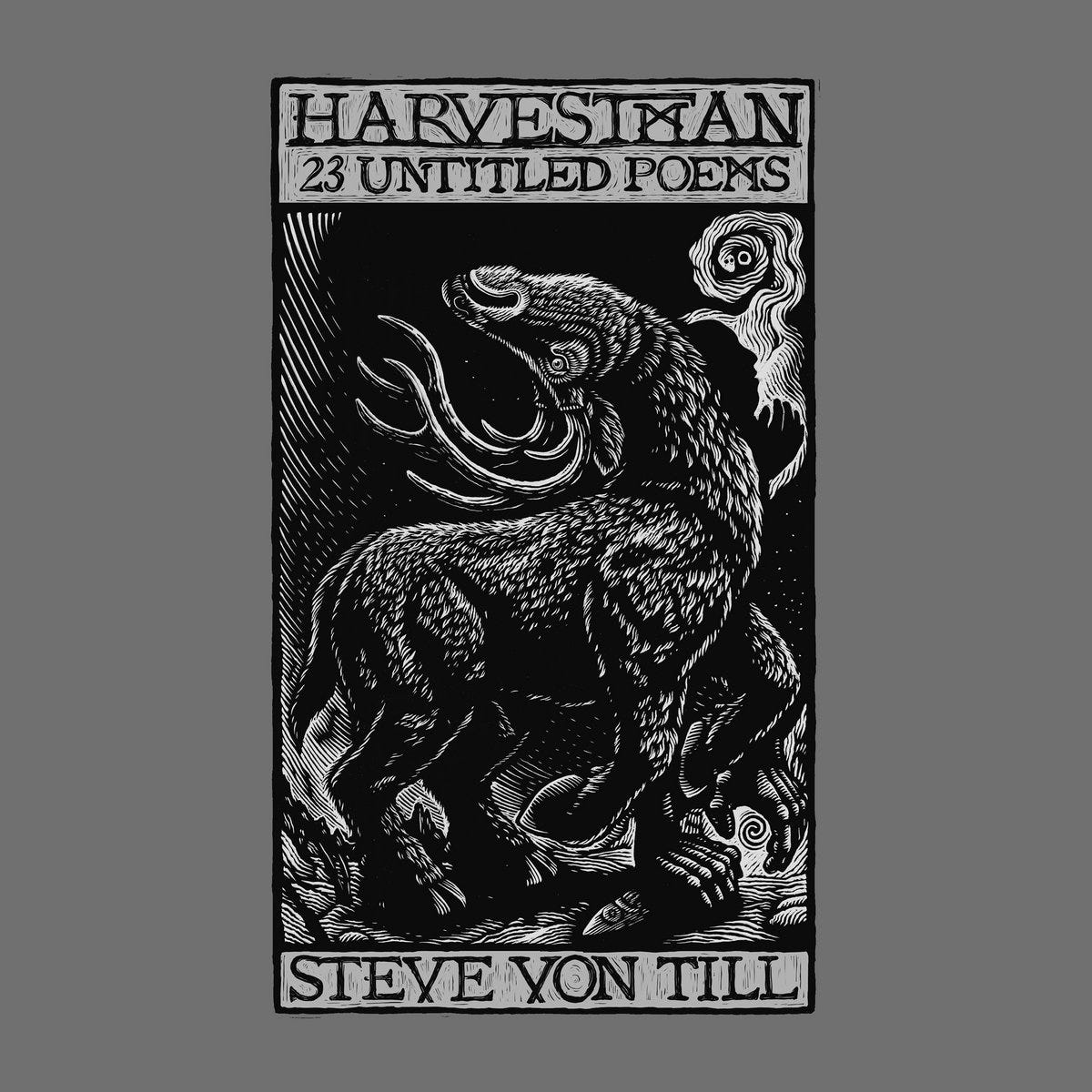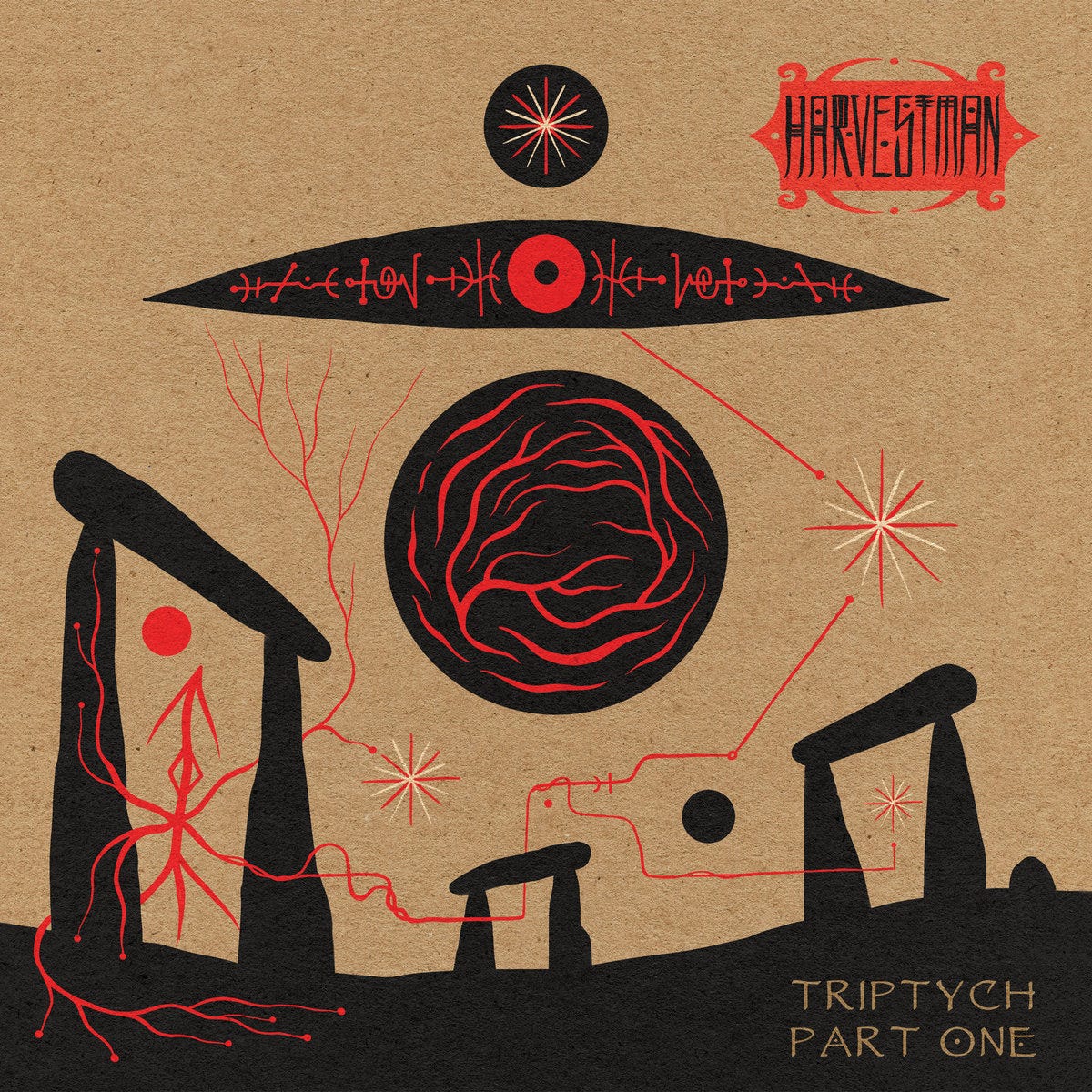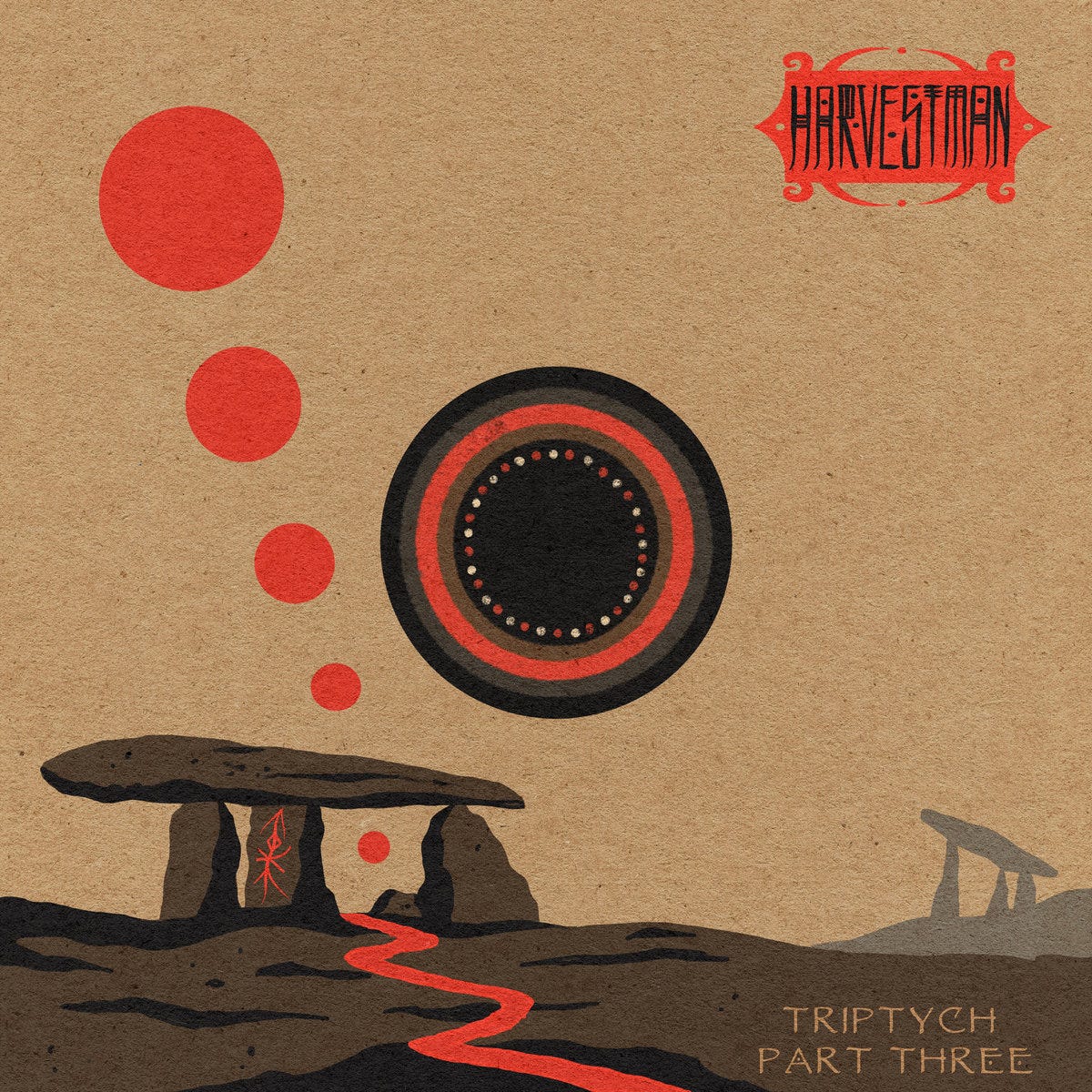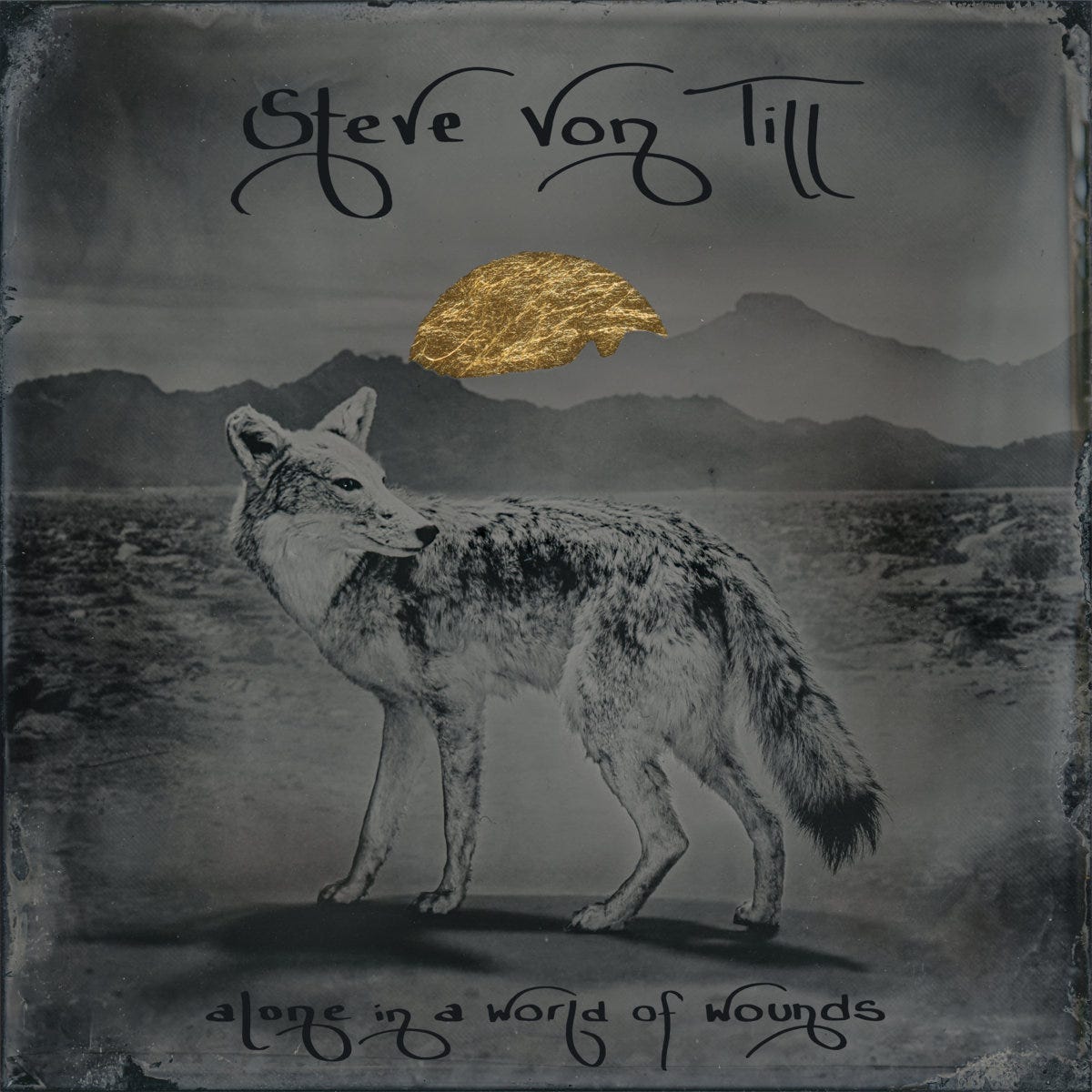DISCOGRAPHY DEEP DIVE: Steve Von Till
Upon the release of Steve's new album, we look back on his entire solo career
No matter how much you admire an artist, or for how long you have followed their work, the best ones always find new ways to impress you more, to further imprint their art upon your heart and brain and skin and various other organs in different ways throughout time. Watching Steve Von Till navigate the various aspects of his Roadburn residency (titled Weaving Ourselves Into The World) this year was not a revelation as such, but another confirmation, under a different light, of the multifaceted talents this fine gentleman has developed over the years. Though Steve has obviously risen to the forefront of alternative/heavy music through his time in Neurosis, he has wisely been able to extract his art from what could have been a singular, umbilical connection with the band, and his body of work is by now able to also stand on its own as essential, without any other connections. During that Roadburn residency, whether soundtracking an extraordinary Thomas Hooper art exhibition (called Resonant Horizons) or offering us two different live performances (Sounds From Triptych, performing pieces from the Harvestman ‘Triptych’ albums of 2024, and Calling Down The Darkness, playing most of his new Steve Von Till album alongside a few cuts from ‘No Wilderness Deep Enough’), not to mention a revelatory discussion panel on the last day (hosted by yours truly, and what an honour it was), it was clear all the way through that we stand before a major artist of our generation - someone who is kind, vulnerable, profoundly human in his connection to others and to the environment that surrounds him, and who is able to then translate all that in transcendental, profoundly evocative and moving music and words.
Two Steve moments really stood out from those April days in Tilburg for me. First of all, during the Calling Down The Darkness performance, at one point during a part in a song when he was essentially whispering into the mic while playing a few sparse piano notes (even percussionist Dave French and drummer Brent Arnold, the two musicians up on stage with him on this occasion, were quiet during that particular bit), it hit me that this was the only sound being heard in the entire Main Stage. 3.000 people, most of them in an understandably joyfully rowdy, slightly inebriated mood, in the middle of the afternoon during a festival, stood in total hushed silence, entranced by one man’s flowing, gentle yet supremely powerful musical poetry. It was amazing to watch.
The other is a more personal moment (and hopefully Steve won’t be mad I’m telling this story) but equally revealing of the man’s character. So we had our panel planned for Sunday, and as artists sometimes do, Steve texted me saying he’d like to just meet up for a bit before the panel, just to talk about a couple of panel-related things. This is a usual thing, sometimes artists want to make sure something important to them is mentioned in these events, or sometimes there’s something more sensitive they’d rather we wouldn’t talk about, and that’s fine. Because Steve was busy with rehearsals and preparations for the residency and I was occupied with, erm, having sushi and watching bands and such other crucial matters, our meeting took a couple of days to materialise and it ended up happening over a chance encounter during breakfast at the hotel we were both staying at. It lasted about five minutes, and it turns out that Steve just wanted to make sure that a) we could talk about the Firekeeper Alliance (a non-profit organization committed to reducing suicide rates among the Blackfeet Nation and other Indigenous communities in Montana, that Steve collaborates with) and b) we could call Thomas Hooper to join us on the panel when we talked about the art exhibition. These were actually two things I planned to do already, but it says a lot about the man that before a public interview with him, about him, to cap an incredibly prestigious artistic residency, his concern was solely about others and recognising the importance of their work. They do say to never meet your heroes, but you know, if Steve Von Till happens to be one of yours, go ahead if you have the chance. You’ll be okay.
So, we’re here mostly because ‘Alone In A World Of Wounds’, Steve’s new album that he performed in its quasi-entirety at Roadburn and whose songs were able to will the huge crowd into stunned silence all on their own, came out a few days ago. It’s a big deal, and it needs to be signaled. I’ve interviewed Steve a million times in many forms, he’s been on the podcast a few times already, so there was no need to call up the man again, he’s got enough things to do. So to celebrate not only the new album, but the body of work this extraordinary artist has been building over the years, we thought it would be cool to do one of our Discography Deep Dives on him, with ‘Alone…’ already included since we’ve been lucky to have it for a while now.
Just to clarify the selections, we really wanted to focus on Steve himself and by himself, i.e. records under the name Steve Von Till or his Harvestman alias, hence the absence of Neurosis/Tribes Of Neurot records or even some other collaborative works he has been a part of, like the Culper Ring album or the ‘Songs Of Townes Van Zandt’ project, for instance. So without further ado, let’s turn back the clock 25 years and get this thing started.
Steve Von Till
As The Crow Flies
Neurot Recordings
2000
The one that started it all, and if you think about it, this means even more than just Steve Von Till’s solo endeavours. Though there were “adventures” of this kind before, this album and all that it meant was a sort of pivotal point in the various heavy music scenes and sub-scenes - the now common exercise of “dude from a heavy band picks up an acoustic guitar and does a folk album”, to reduce it jokingly to its simplest form, started to be normalised right here, with its stark guitar pluckings and hoarse whispers and absolutely nothing else. It’s almost an exercise in minimalism, yet remains entirely song-based given the strength of the understated compositions - ‘We All Fall’ and ‘Twice Born’ remain as two of my all-time favourite Steve tunes, for instance. As the wonderful J. Bennett has described it, ‘As The Crow Flies’ takes a “direct path from spirit to spirit, from heart to heart, from source to ear.” Recorded at home, just like the Paula Frazer album we talked about the other day in our 13 Underrated feature, and similarly to that haunting record, it wouldn’t have had such a profound impact if it had been manifested in any other way. The world was a very different place when this record initially came out, but like some other of the best things in life, it will remain forever timeless.
Steve Von Till
If I Should Fall To The Field
Neurot Recordings
2002
Though it flows seamlessly as a natural follow-up to ‘As The Crow Flies’, the progression is at the same time evident, with a more elaborate recording process and a few accompanying musicians. Though that elaboration is present in the songs, it remains subtle and sombre, and the compositions still feel uncluttered and simple, though never simplistic - the crucial phrase “you hear the thunder but can’t get out of the storm” and its slowly developing melody on opener ‘Breathe’ will forever haunt you once you hear it, for example. Whereas the first album feels timeless, as mentioned before, ‘If I Should Fall…’ feels ancient in all the best ways, like stumbling upon a recording made when technology didn’t allow for recordings yet, and even a heart-stopping rendition of Neil Young’s ‘Running Dry’ is interpreted in a way that entirely fits this vibe. Aside from the traditional texts on ‘My Work Is Done’ and ‘Am I Born To Die’ (also the song itself is an old hymn, in the case of this one), the culmination of this feeling comes with the closing piece, ‘The Harpy’, a recording of Steve's grandfather reciting an Alfred Lord Tennyson poem that is as powerful as it is ethereal and ghostly.
Harvestman
Lashing The Rye
Neurot Recordings
2005
But sparse folk records didn’t quite scratch all of Steve Von Till’s artistic itches, you see. A total gear nerd like Steve is will, by the law of nature, eventually end up making a drone-related record, except in this case, the description of the first Harvestman album is not that simple. Yes, there’s a lot of droning electric-guitar worship going on, but never for style alone, there’s always a purpose, a meaning, almost a song breaking out from something that isn’t a song. At its core, ‘Lashing The Rye’ is also a folk record, albeit a (beautiful) bastardisation of the original English folk, the ghosts of old traditional songs and Steeleye Span and Fairport Convention allowed to roam freely and direct the crackling electricity of the instrumentation (some of it, at least, since there’s even bagpipes on a couple of tunes here!), and mould it into something as earthy and pastoral as the two Steve Von Till records that had been released at the time. Steve actually played a solo show at Roadburn 2009 where the setlist was a mix of both SVT and Harvestman songs, making clear from the beginning that the relationship between his two solo incarnations has always been a close one. Hell, the main description blurb that still stands on the Harvestman Bandcamp puts it better than anyone ever will: “Traditional folk songs distilled and distorted into abstract guitar psychedelica.” That’s exactly what this is, and it’s brilliant.
Steve Von Till
A Grave Is A Grim Horse
Neurot Recordings
2008
That Neil Young cover on ‘If I Should Fall To The Field’ was very important, because cover songs would come to be crucial throughout Steve’s solo career, his unique interpretations of other people’s songs becoming a sort of connecting factor to other worlds, sort of helping to ground these records to the respective open fields where they belong. ‘A Grave Is A Grim Horse’ is almost a homage to the power of song itself, bravely mixing four cover songs (Nick Drake’s ‘Clothes Of Sand’, Townes Van Zandt’s ‘The Spider Song’, Mickey Newberry’s ‘Willow Tree’ and Lyle Lovett’s ‘Promises’) among the originals and making them as much part of the record. It’s as if these songs informed Steve’s approach to his own, and this has some of his most memorable, affecting compositions. In fact, the biggest compliment one can pay is that even with those heavyweights in the lineup, the major highlights actually end up being ‘Valley Of The Moon’ and ‘Looking For Dry Land’, two of Steve’s own songs. His vocal evolution is also noticeable - perhaps, once again, encouraged by the way he “had” to sing those four songs, Steve unlocks a new singing voice here, not relying solely on his hoarse sort of whisper anymore, actually attempting a cleaner, more emotional palette of tones that really works wonderfully well and helps bring the songs to a whole new dimension. All in all, this is still the Steve Von Till album I return to the most.
Harvestman
In A Dark Tongue
Neurot Recordings
2009
Less British folk and much more unhinged psych, the second Harvestman record really set off this identity on the course that it clearly treads now. Though a very dark and shadowy record, akin to a very weird hallucinatory trip in the middle of a haunted woods at midnight (hey, even Al Cisneros’ bass shows up on ‘The Hawk of Achill’, as well as Grails’ Alex Hall and his guitar on a couple of tracks), ‘In A Dark Tongue’ also feels very cosmic, not quite leaving the earth and soil that always ground Steve’s work but pulling down the sky and the stars right down to it, so close that you can almost touch them. “Electric guitars and synthesizers, dulcimers and ring modulators, loops and vocals, delay and distortion,” as the list is rolled off on the Bandcamp blurb for this album, so imagine all of those playing inside your head while you go into an underground cave populated by sinister otherworldly creatures on some particularly creepy RPG, and you’re nearly nailing the vibe of this strange and fascinating record.
Harvestman
Trinity
Neurot Recordings
2010
I called ‘In A Dark Tongue’ a sort of soundtrack for a weird video game up there, and it wasn’t just a funny image to come up with - as it seems obvious, the direction Harvestman’s music took after the first album seems tailor-made for soundtrack work, and that’s exactly what ‘Trinity’ is. Originally published in 2006 as the soundtrack for the Alex Infascelli-direct Italian film ‘H2Odio’ (with a curiously creepy The Angels Of Light-ish artwork), it was reissued as a “canonical” Harvestman album - so technically, the third album - a few years later, and to be honest, while it is an amazing soundtrack if you’ve seen the film, it works perfectly well without it too, ranging from beautiful summery guitarwork to sinister, foreboding textures with a remarkably natural flow.
Harvestman
Hawkwind Triad
Neurot Recordings
2010
Okay, so even if this is a collaborative release, alongside US Christmas and Minsk, each covering four Hawkwind songs (except Minsk who do three), I figure it warrants a quick mention if only to reinforce how tailored for spacey sounds Harvestman have become over the years - as well as how good Steve is in general at taking other people’s tunes and making them all his own, no matter how classic they are. There’s no rock more spacey than good old Hawkwind, of course, and the way these songs are Harvestmaned is just sublime. ‘Down Through The Night’ and its loose rockout fuzz in particular is a whole lot of fun.
Steve Von Till
A Life Unto Itself
Neurot Recordings
2015
And then, perhaps surprisingly, the flight trajectory of Steve Von Till’s albums suddenly veered a lot closer onto Harvestman’s with ‘A Life Unto Itself’. Though still unmistakably in SVT-solo territory, Randall Dunn’s production work and an extra dose of psychedelia provided by a more electronically textured approach to some of the instrumentation give this record a sort of magical, tech-ghostly quality (check out ‘Night Of The Moon’!) that was more Harvestman-y than anything else at this point. I remember asking Steve something about this on interviews at the time, if he felt that the two sides of his solo music might be converging again, and his reply was his typically honest “I don’t know”. The man doesn’t have a world-conquering plan, people. He just conquers it anyway by doing what feels right at the time. Anyway, not saying that the other records have aged in any other way than wonderfully well, but ‘A Life Unto Itself’ has done so in a slightly different fashion, in the sense that if you show it to someone who’s not familiar with Steve’s work and tell them it’s a 2025 album, it totally sounds like it. On the other hand, the desert-gazing Neil Young-ish guitar tone could also help to convince them of the opposite, that it’s a lost 1975 album or something. I weirdly still view it as a kind of “new” album myself, maybe because of that peculiar quality it seems to have. Oh, and looking at songs individually, the album would be worth it for opener ‘In Your Wings’ alone, an outrageously beautiful song and the most characteristically Steve Von Till moment of the entire record, or the other big highlight, the harrowing ‘A Language Of Blood’, which Townes himself would have been proud to have written.
Harvestman
Music For Megaliths
Neurot Recordings
2017
“Ruins, monuments, and ancient sites of worship are multi-sensory experiences – at once residues of the sacred, the parchment on which the passage of time has been inscribed and templates for imaginative reconstruction, spaces in which to invest and immerse, to trade your bearings for an inexhaustible state of transition,” so wrote my beloved friend and mentor Jonathan Selzer on the Bandcamp blurb of this album, and this concept seems to have settled over time as the main foundation on which Harvestman rests nowadays, with its logical culmination on the ‘Triptych’, erm, triptych. Steve’s instrumentation list on this piece is staggering: electric guitars, fuzz, hurdy gurdy, bass, synthesizers, filters, delays, grendel drone, commander, mutron, acoustic guitars, vocals. That’s what it took to reproduce - over the course of years of countless quiet dawns, when the rest of the world was still sleeping - the power that these places and structures still hold and what they can mean to our current detached, adrift souls. While not exactly field recordings as such, that’s the feeling that emanates from ‘Music For Megaliths’, as if it was not only recorded under their shadow, but actually created by the megaliths themselves, with Steve as the perfect vessel to assure the transition between worlds.
Steve Von Till
No Wilderness Deep Enough
Neurot Recordings
2020
The album that Steve famously wrote “by accident”, while noodling on a piano on his wife’s family home in rural Germany, initially just something fun to do, to help with the jetlag of the trip. To those simple piano chords, strings, mellotorn and French horn were added later, still mostly as a way to learn how the software worked more than anything else. When Steve realised this could actually be a record, he proposed Randall Dunn a little time in the studio, but his idea was to just make it an instrumental, ambient record. It was Dunn himself who conviced him to sing on it and make it a “proper” Steve Von Till album, which eventually happened. Steve now grudgingly admits Dunn was absolutely right in his instincts - although ‘A Deep Voiceless Wilderness’, the sans vocals version of the album, did appear a while later, and it’s indeed quite a different experience -, but the way these pieces came about really explains the very different, contemplative, lonely atmosphere they hold. The instrumental part has been likened to the ambient works of Jóhann Jóhannsson, Brian Eno or Gavin Bryars, and while the connections are clear, Steve’s by now fully identifiable inner voice, whether literal or figurative, shines through in every note here.
Steve Von Till
Harvestman - 23 Untitled Poems
Neurot Recordings
2021
Not music as such, though there are subtle sound textures and effects enriching the reading of the poems, but Steve is such a vividly evocative writer that his readings end up having pretty much the same effect that a good song does. In hindsight, a Steve Von Till collection of poetry seems obvious - we all know the power of Steve’s words as employed in his music, and it’s clear that even without the music his writing holds a significant weight and meaning all the same. Even more obvious, as the power of his voice is undeniable, to have these poems read by the man himself, getting the best of both world. I love poetry, I’m an avid reader and I even write poetry myself, and even so, I’m usually the guy who says he doesn’t like to hear poetry read out loud. There’s a character in a Terry Pratchett book that listens to music by reading the sheets, he says anything coming between the sheet and the listener (so, a musician actually playing it) is already a defiling of the original idea of the composer. As you can guess, this character is not one of the good ones (it’s Vorbis from ‘Small Gods’, if you’re wondering), but even so I have always kinda identified with that vision, never for music mind you, but for poetry. But goddamnit if Steve Von Till hasn’t made me rethink that whole idea with these readings.
Harvestman
Triptych
Neurot Recordings
2024
I feel like I’ve talked so much about this collection of albums, a truly epic journey through ancient lands, that I’d just be repeating myself all over again. There’s a whole podcast episode with Steve discussing it, and a rather comprehensive balance of the entire triptych on this edition of The Devil’s Month, so do start there if you want a big picture of this remarkable work, whose three parts were released throughout 2024, very symbolically on three of that year’s full moons – April 23rd’s Pink Moon, July 21st’s Buck Moon and October 17th’s Hunter Moon. I mean, just forget yourself and dive into it. That’s it. You’ll get it. Final piece of advice though - do it like you would a proper Lord Of The Rings marathon style - just load up all three parts, close the blinds, and listen to the whole thing as one.
Steve Von Till
Alone In A World Of Wounds
Neurot Recordings
2025
Though I have had the privilege of having lived with ‘Alone In A World Of Wounds’ for a few weeks now, it still feels very premature to throw down any kind of hard conclusions based on this short time. Just like any of the records on this list, Steve’s music has a curiously dual effect - it is, in a way, absolutely immediate, as the shivers you surely also felt the first time you heard ‘Watch Them Fade’ and saw that simple but brutally effective video attest to, but simultaneously they keep revealing their subtle and often understated charms in a slow and peaceful kind of manner. It makes sense, doesn’t it? This music is full of dualities like this. It’s emotionally heavy and sombre, sometimes almost tragic, but also uplifting and transcendental in a way that it can all by itself help you reestablish connections with the world, both inner and outer, that you might have felt lost. It’s earthly and solid but also spacey and psychedelic. It’s impactful and strong but also fragile and vulnerable. And the impression so far is that ‘Alone In A World Of Wounds’ is the record that most clearly exhibits these polarities. It feels like a culmination as much as a departure, a rounding up of all the qualities we have discussed during this entire Discography Deep Dive. The noise/drone textures (‘Old Bent Pine’, or “can electronics feel organic?”), the clash of British folk and Americana, the atmospheric, soundtrack-like vibe, the increasingly adventurous vocal work (Steve says he’s “singing out more”, and oh, that ‘Watch Them Fade’ chorus!), the words that sound like poetry in motion (‘The Dawning Of The Day (Insomnia)’ - is that even a song? Does it matter?)… Essentially, this collection of songs is uniting all that has gone before to brave new ground into the future. As much closing a cycle as it is opening a new one. As it should be.
Want to help us and the bands we cover keep the lights on, and get an exclusive tote bag to show for it? Become a subscriber of TDM and we’ll send you one, free postage worldwide. Also, never miss a post again (‘cause you’ll get ‘em in your inbox) and access our subscriber only posts. Get on it:






